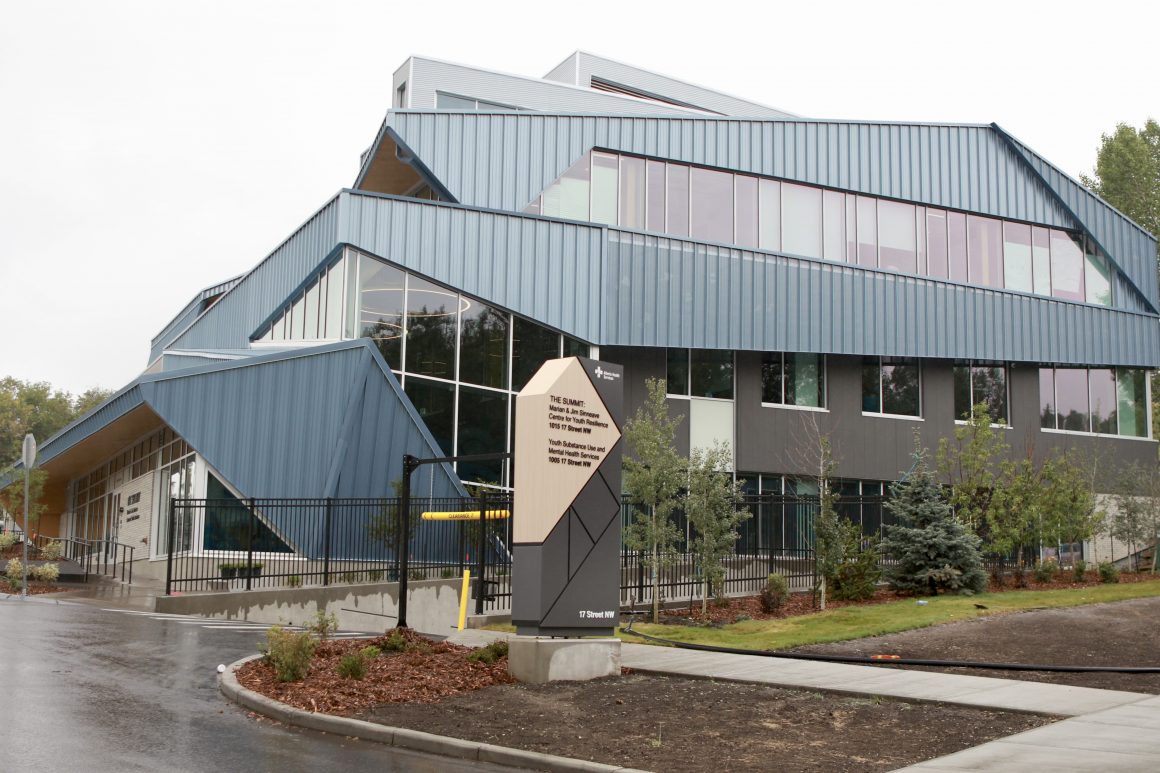
The Summit: A partnership between researchers, clinicians and youth
By Kimberly Taylor, October 24 2023—
The Summit is a mental health facility for youth and emerging adults. It offers walk-in services with no-cost therapy sessions seven days a week, treatment services to manage acute escalating symptoms, and Calgary’s first pediatric mental health day hospital to help youth transition from inpatient care to daily intensive therapy in a community setting.
The Summit is a partnership between the University and the Alberta Children’s Hospital Research Institute with the Mathison Centre and Owerko Centre’s support and involvement.
The Summit does more than offer important and needed services for an underserved population, it also supports research on clinical interventions.
In an interview with the Gauntlet, Freeha Anjum, a member of the research advisory committee made up of high schoolers and undergraduate students for the Summit said that the main goal is to increase mental health resources for youth as well as knowledge from research.
“The Summit is for everyone. Some of their programs, even though they are for under eighteen, have matching programs in other hospitals. So, if there is a program at the Summit that you want to access if you’re over eighteen you can just go to a different hospital that does provide that program.” Anjum said.
“On a larger scale, [their] research is benefiting society and helping us learn more about how mental health is being impacted and improved over time. The actual center is for youth, but the research being done is for society,” Anjum continued.
Anjum explained the role of the advisory committee is to offer input on researchers’ and clinicians’ ideas so that researchers can get advice from people who have dealt with mental health issues. The committee operates under the Summit, but they don’t work with the youth directly.
“They pitch different consultations to us about things they want to try out at the Summit and research they want to do and we give them feedback.” Anjum said, “For example, being able to talk to youth about what they’re pitching is a big way the Summit is collaborating.”
“[We are] getting input from people that are not necessarily going through the system but have dealt with mental health issues at some point. The next step is asking people who are actually going through The Summit,” Anjum continued.
Mental health care for children, teens, and young adults can be difficult to access. Often to access programs an individual needs to be 18 or older, or programs are spread out at different hospitals and locations. The Summit aims to bring multiple programs into one location and to partner these programs with research. A particular need is for both access to long-term care and support, and longitudinal research on interventions and programs. By pairing clinical support with research, the Summit can evaluate which efforts are helpful and which are not.
“The Summit is hopefully going to have a system to provide that long-term support and the research advisory council is a part of that. [We are] a part of seeing if that’s benefiting them long term to go to the summit and use those resources.” Anjum said, “Hopefully, it creates a centralized system so we can see how everything maps out and see what kind of resources kids have used before.”
There are two main streams of research: Mental Health Research for Kids (MH4K) and Framework of Research for Emerging Adults (FREA). Underneath these umbrellas are various projects and programs, such as the check-in program that tracks youth progress over time, and a database of studies on emerging adults and mental health. Anjum said that it is very rewarding as an advisory committee member to know that the researchers listen to their voices.
“The students on the advisory council in general are mainly high school students and undergraduate students,” Anjum said, “There are a lot of ways to get involved at the Summit and the Summit is doing a lot of really good work, especially with the research advisory committee. A lot of these projects are things that benefit people our age and we can be a part of. These changes are happening and it’s really good that they’re happening, and if someone wants to be a part of that change it would be really beneficial.”
The advisory committee is not currently recruiting but they can be contacted for further information by email at mhresearch4kids@ucalgary.ca. For information please visit the Summit’s website.
